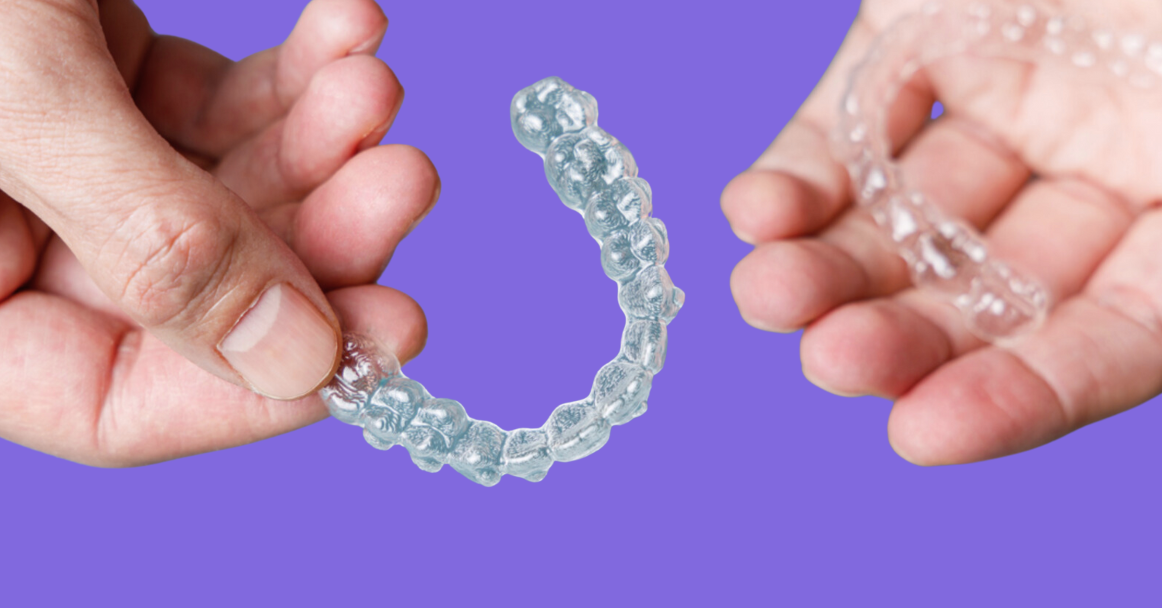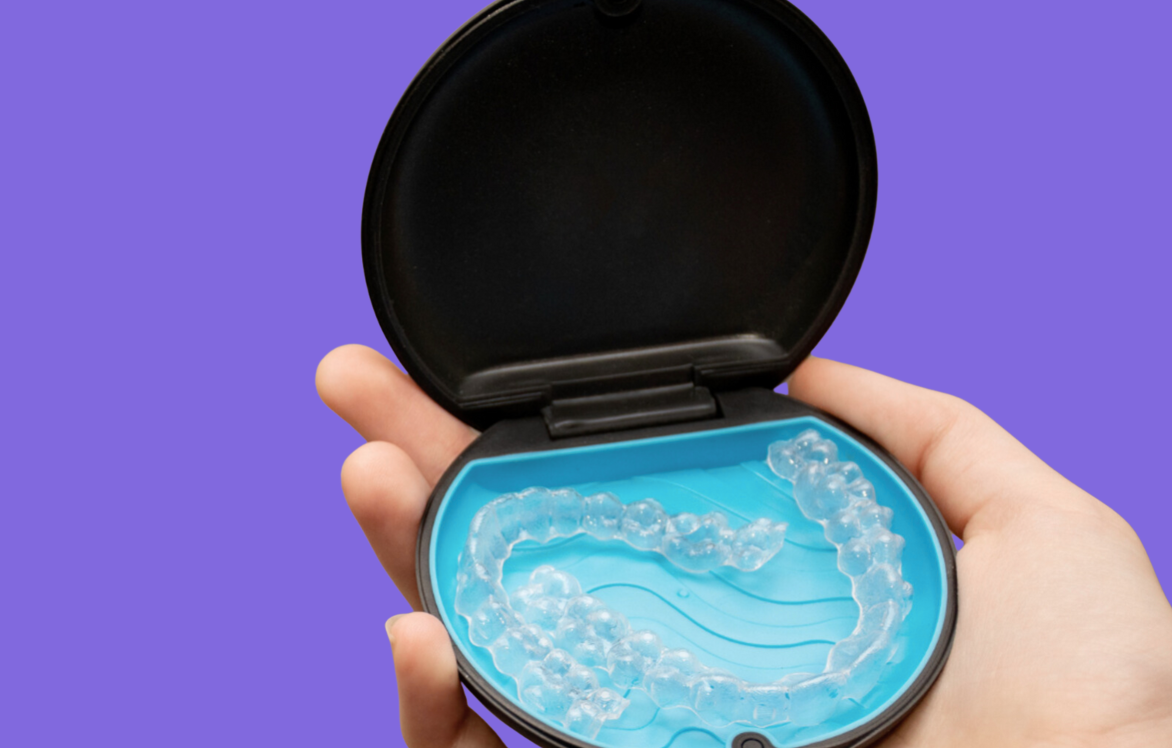What Do I Do If My Aligners Are Damaged Or Lost?
February 12th, 2024 | 4 min read

Clear aligners have revolutionized orthodontic treatment, offering a discreet and convenient way to achieve a perfect smile. Navigating the challenges of damaged or lost aligners is a pivotal part of your orthodontic journey.
At NYC Smile Design, we’ve seen firsthand how transformative this treatment can be, yet we also understand the challenges it can bring, such as damaged or lost aligners. These issues, while common, can be significant hurdles in your journey to straighter teeth.
This article is crafted to empower you with the necessary knowledge and steps, drawn from our extensive experience, to address these challenges effectively. We aim to ensure that your orthodontic treatment with clear aligners progresses smoothly, despite any bumps along the way.
Understanding the Importance of Intact Aligners
Clear aligners are a cornerstone of modern orthodontic treatment, offering a discreet and comfortable way to achieve a perfect smile. Unlike traditional braces, they’re designed to be worn for a specified period, making each set crucial for the next phase of teeth movement.
The Role of Aligners in Orthodontic Treatment
Each set of aligners is tailored to make slight adjustments to your teeth. Each set of aligners is worn for a specific period, usually one to two weeks, before moving on to the next set in the series. They work in a sequence, and any disruption can affect the overall treatment plan.
Contacting your dentist immediately if your aligners are damaged or lost is crucial. Prompt communication can prevent the need to restart the aligner process from the beginning, saving both time and ensuring the continuity of your treatment plan. Addressing these issues swiftly with your dentist is key to maintaining the effectiveness and efficiency of your orthodontic journey.
Immediate Actions for Damaged Aligners
Discovering damage to your aligners requires prompt attention to ensure your orthodontic treatment remains effective. Here is a more detailed approach to handling such situations without using bullet points.
Assessing the Damage on Your Aligners
The moment you notice any damage, it’s essential to conduct a thorough examination. Look for any cracks, chips, or signs of warping. Even minor damage, such as a small crack or chip, can impact the aligner’s ability to function correctly and apply the necessary pressure for teeth movement. Warping, often caused by heat exposure or improper handling, can alter the fit of the aligner, making it less effective.
Consulting with Your Dentist
Once you’ve identified the damage, the next step is to reach out to your orthodontist. You should:
- Document the Damage: Taking clear photos of the damaged areas is useful for your orthodontist to assess the severity of the damage.
- Communicate with Your Dentist: Share your observations and photos with your dentist. Be ready to provide details about how the damage might have occurred, as this information can be crucial in deciding the next steps.
- Receive Expert Advice: Your dentist will evaluate whether the damage is minor enough to continue using the current set or if you need a replacement. In some cases, they may advise you to revert to a previous set temporarily.
- Follow the Recommended Course of Action: Depending on your dentist’s assessment, you may need to schedule an appointment for a replacement or continue with the current aligner until your next scheduled change.
It is important to act quickly and follow your dentist’s guidance to ensure that your treatment stays on track. Delaying or ignoring damage to your aligners can lead to setbacks in your treatment plan.
By understanding these steps and maintaining open communication with your orthodontist, you can effectively manage the situation and keep your orthodontic treatment progressing smoothly.

Dealing with Lost Aligners
Losing your aligners is a common concern during orthodontic treatment, but it’s a situation that can be managed effectively with the right approach.
Steps to Take When Your Aligners Are Lost
The discovery of lost aligners requires immediate action to prevent any setbacks in your treatment plan. The first thing to do is to check if you have the previous set of aligners. If you’ve recently transitioned to a new set, the previous set can serve as a temporary solution to keep your teeth in their current position. While it may not continue the progress of your treatment, it can prevent your teeth from moving back to their previous state.
Communicating with Your Dentist
It’s crucial to inform your dentist about the loss as soon as you realize it. Here’s what to do:
- Notify Your Dentist Immediately: Quick communication is key. Let them know about the lost aligners as soon as possible.
- Discuss Next Steps: Your dentist will assess the situation and advise on the best course of action. This might include continuing with your previous set of aligners temporarily or, if necessary, ordering a replacement set. In some cases, they might expedite the production of your next set of aligners to keep your treatment on track or have you move on to the next set under their supervision.
- Follow Their Guidance: Based on their professional assessment, your dentist will provide specific instructions. Adhering to these guidelines is essential for the continuity of your treatment.
Losing aligners doesn’t have to be a major setback. By taking quick action and working closely with your dentist, you can effectively manage this issue and continue on your path to achieving the desired results from your orthodontic treatment.
Prevention and Care for Aligners
Taking good care of your aligners is crucial for preventing damage or loss.
1. Best Practices for Aligner Care
Always store your aligners in their case when not in use. Avoid exposing them to heat or harsh chemicals that could warp or damage them.
2. Preparing for Emergencies
Keep a note of your dentist’s contact information and be aware of the steps to take in case of damaged or lost aligners.

Conclusion: Maintaining Your Orthodontic Treatment’s Integrity
While damaged or lost aligners can be a hurdle in your orthodontic journey, understanding how to handle these situations ensures that your path to a perfect smile remains uninterrupted. Remember, prompt action and communication with your dentist are key.
If you’re considering aligners for your orthodontic needs or need a new smile transformation plan, don’t hesitate to reach out for expert guidance. Schedule a consultation with NYC Smile Design to explore your options and embark on the journey to achieving your ideal smile. Our team is dedicated to providing personalized, effective solutions for all your dental and orthodontic needs. Visit NYC Smile Design to book your appointment and take the first step towards a radiant, confident smile.
Topics:

